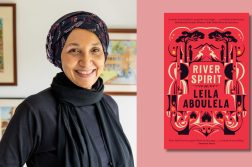Colours of Hatred is a thriller that explores themes around love and of course, hatred, or more importantly, the events that culminate in hatred.
The book opens with a two-page prologue set in August 2007 at Enugu, South-Eastern Nigeria, with a confession from the main character, Leona, mother belongs to the Dinka tribe of South Sudan and her father to the South-Eastern part of Nigeria. The author transitions from the present to various timelines in the past to unveil the events that earn the book its captivating title.
And what are we without our histories! History plays a fundamental role in the plot of Obinna’s, Colours of Hatred. Leona’s bi-cultural family is in the middle of the Sudanese conflict that escalates into the second Sudanese civil war lasting for twenty-two years, and the life-wrecking effects of war take its toll on the family, mostly Mary, Leona’s mother. The Sudanese war like many wars fought before it, left more than four million South Sudanese displaced and two million dead from the war, famine, and diseases. It is yet another proof of Mahatma Gandhi’s saying that “war is bad in essence.”
Events spiralled to the present, set in 2005, Abuja, with Leona submerged in her mist-clogged mind, recounting her father’s request to do the unfathomable: “to live with…love and cherish this man for a few years, and just when I had made him trust me enough as his wife, I would poison him.”
One does not awake to such a desire to kill another, but such desire brews like black tea over a stove. This devious plot by Leona’s father is a concoction born out of complex events that led to the loss of Leona’s mother, her father’s first wife among three.
Love and lust interplay throughout the novel, exposing the fragility and strength of human emotions. While in Sudan, Leona’s mother and father share a sacred relationship that is soft, delicate, and admirable; and Leona thrives within the sanctity of her parent’s relationship. However, on arrival in Nigeria, the once-upon-beautiful love shared by her parents withers into a bitter concoction of arguments, distrust, pride, and eventually hatred. Leona somewhat inherits this hatred from her father without questioning the allegations made against her father’s object of hatred.
An unwise and foolish decision, right?
While we hurriedly judge Leona’s inherited hatred, we must examine our thoughts and feelings concerning issues like tribal differences/tribalism, particularly within Nigerian societies. For many, dislike or hatred that often comes off as preconceived ideas concerning other tribal groups is inherited, even unconsciously, from fathers, mothers, and relatives, who most likely inherited it. Sometimes, personal experiences or encounters become the sole basis for our opinions concerning various tribal groups. It is what Chimamanda Ngozi Adichie refers to as the “danger of a single story.”
Two significant themes which play out in Colours of Hatred are mental health and parenting. Thankfully, there have been commendable levels of awareness concerning mental health, especially for younger individuals, in the past three years. An online publication in the International Journal of Health Planning and Management (2022) revealed that “people in Nigeria lack adequate knowledge regarding mental health disorders and have various misconceptions for its underlying causes.” Some attribute mental health disorders to perceived spiritual attacks and fail to seek professional help at health facilities. As a result, there are many undiagnosed and untreated psychological disorders, and victims end up posing a danger to themselves and those around them.
It’s interesting to experience religion from the perspective of the main character, and it plays out in her relationship with a soon-to-be-ordained Priest. The romantic relationship between Leona and Kosi imprints timeless images in our minds, and every scene leaves us speechless. It treads dangerously on the waters of Catholicism and subtly questions the concept of celibacy. Kosi is conflicted between following his dream as a soon-to-be ordained priest and loving the woman he’s always had eyes for, while Leona goes through the motions of his conflict.
There is a tinge of irony in the title when set against the theme in the book: love. Love drives each character to make decisions that can alter their lives, and now, it pushes Leona to avenge her mother’s death. Colours of Hatred weaves timelines of events to paint a single picture summarised into a question- What will you do for love?


